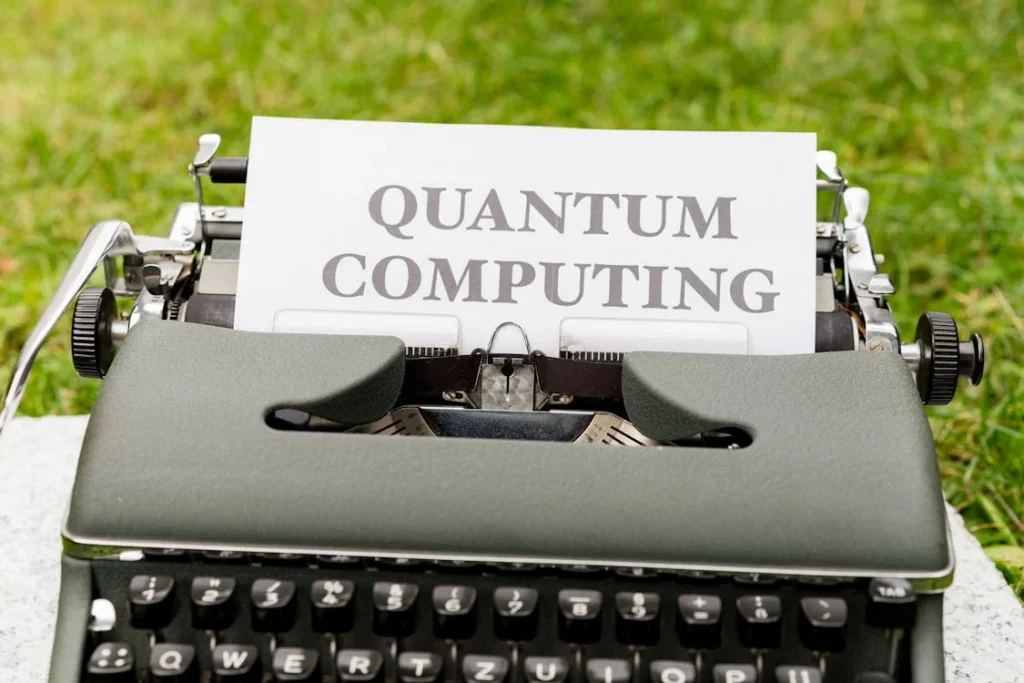Quantum Computing isn’t only the following stage in that frame of mind of registering; it’s a jump into a domain represented by the secretive laws of quantum mechanics. In this article, we dig into the basics of quantum processing, its fundamental standards, equipment parts, calculations, applications, challenges, and the promising future it holds.
Introduction to Quantum Computing
What is Quantum Computing?
Quantum processing tackles the standards of quantum mechanics to perform calculations that traditional PCs see as overwhelming. It works by controlling quantum bits or qubits, which can exist in different states all the while.
How does it differ from classical computing?
While traditional PCs process information in paired structure, with bits addressing either 0 or 1, quantum PCs use qubits that can be in a superposition of the two states at the same time. This inborn parallelism empowers quantum PCs to tackle specific issues dramatically quicker than traditional PCs.
Principles of Quantum Mechanics
Superposition
Superposition is a major rule in quantum mechanics, permitting qubits to exist in different states at the same time until estimated. This property shapes the premise of quantum registering’s computational power.
Entanglement
Ensnarement is another interesting peculiarity where the condition of one qubit becomes corresponded with the condition of another, no matter what the distance between them. This property empowers quantum PCs to perform complex calculations in equal.
Quantum Tunneling
Quantum burrowing permits particles to go through potential hindrances that would be unconquerable in traditional material science. In quantum registering, it works with the development of qubits through energy obstructions, improving computational proficiency.
Quantum Computing Hardware
Qubits vs. Classical Bits
Dissimilar to traditional pieces, which must be in each state in turn, qubits can exist in a superposition of states, dramatically expanding the computational force of quantum PCs.
Quantum Gates
Quantum doors are the structure blocks of quantum circuits, closely resembling traditional rationale entryways. They control qubits’ states to perform calculations, with tasks like superposition, trap, and quantum burrowing.
Quantum Processors
Quantum processors are the actual gadgets that carry out quantum calculations. They comprise of varieties of qubits, painstakingly controlled to keep up with lucidness and perform calculations.
Quantum Algorithms
Shor’s Algorithm
Shor’s calculation is a historic quantum calculation for whole number factorization, which represents a huge test for old style PCs because of its dramatic intricacy. Quantum PCs, notwithstanding, can tackle this issue proficiently, compromising current encryption techniques.
Grover’s Algorithm
Grover’s calculation gives a quadratic speedup to looking through unsorted data sets contrasted with old style calculations. It accomplishes this by utilizing quantum parallelism and sufficiency intensification, making it an important instrument for improvement issues.
Quantum Fourier Transform
The quantum Fourier change is a critical part of numerous quantum calculations, empowering productive control of quantum states. It assumes a urgent part in quantum calculations for undertakings like sign handling and cryptography.
Applications of Quantum Computing
Cryptography
Quantum figuring presents both a danger and a chance for cryptography. While it can break current cryptographic conventions utilizing calculations like Shor’s, it additionally offers the potential for quantum-safe encryption techniques in light of quantum standards.
Drug Discovery
Quantum processing holds guarantee for changing medication disclosure by recreating atomic associations with uncommon exactness and speed. It can speed up the advancement of new medications and treatments, prompting forward leaps in medical services.
Optimization Problems
Quantum registering succeeds at tackling enhancement issues across different spaces, like operations, money, and assembling. Its capacity to investigate huge arrangement spaces effectively makes it an integral asset for further developing cycles and navigation.
Challenges and Limitations
Error Correction
One of the significant difficulties in quantum processing is blunder adjustment. Quantum frameworks are exceptionally helpless to clamor and blunders, requiring powerful mistake remedy strategies to guarantee the dependability of calculations.
Decoherence
Decoherence happens when quantum frameworks interface with their current circumstance, causing qubits to lose rationality and become entrapped with outer levels of opportunity. Alleviating decoherence is fundamental for keeping up with the trustworthiness of quantum calculations.
Scalability
Scaling quantum PCs to countless qubits while keeping up with soundness and limiting blunders is a huge specialized challenge. Accomplishing versatility is pivotal for understanding the maximum capacity of quantum registering across different applications.
Current State and Future Outlook
Major Players in Quantum Computing
A few organizations and examination foundations are effectively taken part in propelling quantum registering innovation, including IBM, Google, Microsoft, and new businesses like Rigetti Figuring and IonQ. Each is pushing the limits of equipment improvement, calculation plan, and application research.
Roadmap for Development
The guide for quantum registering advancement includes conquering specialized difficulties, further developing equipment abilities, refining calculations, and extending the scope of utilizations. As the field keeps on developing, we can expect quantum processing to assume an undeniably conspicuous part in different ventures, from network safety to materials science.
Conclusion
Quantum computing represents a paradigm shift in computing, promising unprecedented computational power and capabilities. By harnessing the principles of quantum mechanics, it opens doors to solving complex problems that were previously intractable. While challenges remain, the progress made in hardware, algorithms, and applications bodes well for the future of quantum computing.
Unique FAQs
What makes quantum computing different from classical computing?
Quantum computing utilizes qubits, which can exist in multiple states simultaneously, enabling exponential computational power compared to classical bits.
How does quantum computing impact cryptography?
Quantum computing threatens current cryptographic protocols by efficiently solving problems like integer factorization, but it also offers opportunities for quantum-safe encryption methods.
What are some practical applications of quantum computing?
Quantum computing has applications in drug discovery, optimization problems, cryptography, and other fields requiring complex computational tasks.
What are the major challenges in quantum computing?
Challenges include error correction, decoherence, and scalability, which must be addressed to realize the full potential of quantum computing.
Which companies are leading the development of quantum computing?
Companies like IBM, Google, Microsoft, and startups such as Rigetti Computing and IonQ are at the forefront of advancing quantum computing technology.

